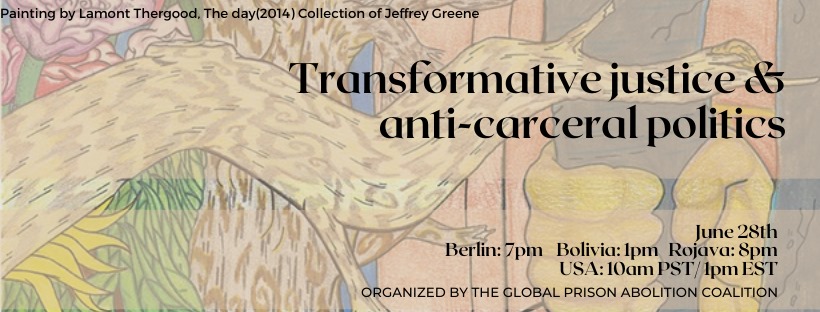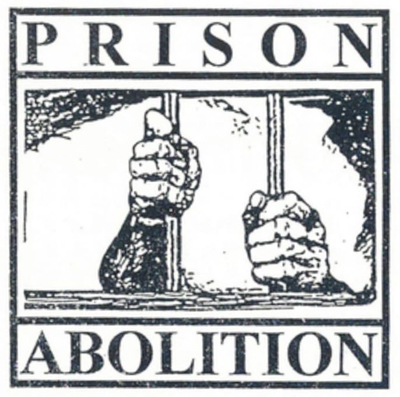While nine years ago female protesters struggled with violence on the street, female dissidents today face worse consequences in political prisons. This includes the famous human rights lawyer Mahienour El Massry, who has been in and out of prison for the past 15 years.
By Yasmin
Originally published by The Alliance of Middle Eastern and North African Socialists
The current status of women’s rights in Egypt reflects nothing of the country’s long history of feminism. Over the course of the past century, silencing Egyptian women proved to be a difficult task whether for the state or for its patriarchal institutions.
Women’s struggles across the world are equally fascinating – even if my bias makes me secretly feel that the Egyptian women’s fight for freedom has been the greatest of them all. The distinctive feature, however, of Egyptian feminism, I would argue, is the bold expression of anger. And I don’t mean here the negative, probably Eurocentric, view of anger as this destructive, futile force. No, I mean the empowering type of anger, the anger that results from an inherent confidence that I deserve better than this. It is a type of anger that many Egyptian children proudly recall seeing in their mothers and grandmothers, and the type of anger that drives women out of their homes and into the dangerous realm of public spaces and the workforce, putting food on the table and sending kids to school.
Growing up in the economically struggling neighbourhood of Omraneya in Giza, I will never forget how proud I was of my mother, working two jobs with nothing but a short break in between, during which she came home to cook a warm meal for us. Chicken and potatoes baked in the oven, fried prawns and French fries, juicy beef cooked in red stew with okra, none of which reflected her humble salary. This was in the 1990’s, at the time when the president’s wife embezzled millions of Egyptian pounds from public money to build jacuzzies for her grandchildren and decorate the houses of her daughters in law. Everyone was watching in resentment, especially the women that had to take things into their owns hands when the men lost the will to fight.
When my generation grew up to face unemployment and a collapsing economy, with no hope of ever giving our mothers the dignified retirement that they deserve, women were at the forefront of the battle. If they were going to get crushed by a stronger enemy, the state, they weren’t going down without a fight. And fight they did, mobilising alongside the men in political movements opposing the Mubarak regime, including Kefaya Movement, formed in 2004, and the 6 April Youth Movement, formed in 2008. Parallel to the increasing role that women played, hostility towards them in public spaces was on the rise. By the time these political movements came to life, Cairo’s streets had already become infested with sexual harassment, which evolved over the years from cat calling to aggressive grabbing, especially in public transportation.
Because of the critical role that women played in the opposition, they were the main targets of the state when it came to silencing protesters. The first time the State Security started using sexual harassment to disperse protesters on a mass scale was on the 25th of May 2005, commonly known among the activist communities as Black Wednesday. Such attacks were orchestrated and sponsored by Mubarak’s allies, the likes of business tycoon Ibrahim Kamel (deceased in 2018). Such hostility towards female protesters was further exacerbated during and after the 2011 revolution. The day Mubarak stepped down on the 11th of February, the first gang rape took place in Tahrir Square, demonstrating calculated tactics that repeatedly occurred during protests afterwards. These tactics include what became known as the “circle of hell”, during which a group of men would surround a woman forming a circle that isolates her from others and this circle would in turn be surrounded by a second layer that prevents outsiders from intervening.
Later that year, in December 2011, a picture that reflected the struggles of female protesters was captured, depicting a woman, dressed in hijab and conservative back attire, getting beaten and stripped half naked, exposing her blue bra, during a protest in Tahrir Square. It was this incident that led to the birth of the blue bra as an icon of the Egyptian revolution. The image, that won its photographer numerous awards, spread like wildfire, whether in the international press or on the city walls through street art and stencils. It was a picture that remains difficult to look at until this day, and it is hard to believe that this same woman is still ruled by that same army that violated her because she expressed her views.
Indeed, the political situation today in Egypt is back to point zero and the status of the women is worse than ever. Of course, women that belong to the ruling elite who are enjoying different upper class privileges are the first to say that female protesters deserve to get gang raped and to serve years of their lives in political prison. Television broadcasters, who are themselves independent women practicing their own freedom, were among the many that launched a campaign basically saying that women who want to stay safe should stay home.
Over the course of the following years, victims of these incidents spoke out, publishing accounts of how they had been stripped naked and gang raped on the streets for hours before someone could rescue them.
One of the victims recalls her rape just one day after it happened, writing, “I begged him to make way so that I can escape to the field hospital. I do not really know what drove this harasser to save me after I begged him… and I do not know how he suddenly raised his belt, beating everyone around him, frantically screaming, ‘I will protect her… I will protect her’. I do not know how his conscience was awakened, but I found myself crawling to the field hospital.” This is not to mention the virginity tests carried out by military doctors against female protesters, for which no one was convicted.
While nine years ago female protesters struggled with violence on the street, female dissidents today face worse consequences in political prisons. This includes the famous human rights lawyer Mahienour El Massry, who has been in and out of prison for the past 15 years. “We don’t like jail but we’re not scared of it,” she once said in what became a famous quote that not only captures her defiance but also reflects her life as a narrative that revolves around political prison. A native of Alexandria and a member of the Revolutionary Socialists, she engaged with the opposition from its early years and became increasingly involved after she earned her law degree and started defending activists and laborers. Today, she is among the country’s 70,000 political prisoners.
While the number of political prisoners is rapidly increasing – the government arrested 4000 prisoners in just two months following the September 20th, 2019 protests –, a campaign was launched by the Egyptian Initiative for Personal Rights (EIPR), highlighted the most intimate of the female prisoner’s struggles, menstruation. Periods in Prison, the name of the campaign, aimed at pressuring prison authorities to provide cotton-based sanitary pads free of charge, narrates the struggles of five women who were previously in jail, including three political prisoners.
“The prison transport vehicle is in itself, completely inhumane for a woman on her period. It’s terrible. From the metal interior you have to sit on, to the extreme shaking of the vehicle … it’s not comfortable at all … and in a trip that lasts two hours each way (to and from court for example). And when you get to the prosecutor, you cannot always use the bathroom. Also, when you’re going to the Kasr al-Ainy hospital, for example, the trip is usually about three hours each way. So on days like these, it’s normal to spend the entire day wearing the same pad,” a former prisoner writes in the EIPR report.
When it comes to political activists, they are often abducted for days and sometimes even months before they merge in the custody of police. The main purpose of this is to torture the prisoner to pressure her into confessing without being held accountable. During this time of disappearance, the prisoners have nothing on them except what they were wearing when they got caught.
“When I went to prison, I had been abducted for 16 days. I was sitting blindfolded in Lazoghly (the national security headquarters in Cairo). Another woman arrived after me. She had been abducted for three days and she had her period when she was kidnapped and didn’t have anything on her, not even a bag. When she arrived to the prison, she was completely soaked with her blood. She was in a very bad condition and all of her clothes were stained with blood,” a testimony published on the NGO’s Twitter account says.
According to one of the interviewees, the female body, with the exception of pregnancy, is invisible to Egyptian law. Therefore, it is not offered any special treatment or requirements than that offered to men. This means that female prisoners have to wait for their visits, during which their families come and provide them with things like money, pads, underwear, food, and medicine. However, some political prisoners are not allowed family visits, nor are they allowed access to the canteen, which sells overpriced items.
When this lack of sanitary pads, not to mention the bad hygienic conditions of the prison, cause infections and other health problem, going to the hospital is another ordeal in itself. If the warden takes the prisoner’s request seriously and the prisoner is indeed sent for a health check-up, the hospital staff are often “vicious and aggressive” in their treatment with the prisoners.
The campaign was aimed to draw attention to the struggles of cis females as well as transsexuals, but the Egyptian law continues to refuse to see the female body and its requirements and to force the transsexual body into the category of their assigned sex at birth.
When Mahienour El Masry and others struggled in women’s prison, the transsexual activist Malak Al Kashif fought long and hard just to join them. Thrown in men’s prison, with the excuse that her sex exchange procedures were not complete, Al Kashif’s fight to move to women’s prison soon made her famous among the Egyptian opposition, drawing the attention of locals NGO’s. In addition to sharing the same struggles of other political prisoners like medical negligence, including depriving her of the hormonal medicine that she needed, she was also subjected to sexual harassment by other inmates in men’s prison. Like other minorities, transsexuals in Egypt are largely rejected by the state’s institutions and, in most cases, by the society itself. The person that Al Kashif was inspired with when she was still considered to be a little boy, the transsexual actress Hanan Al-Tawil, died under tragic circumstances with speculations that she might have committed suicide. Just like Al Kashif, Al-Tawil was rejected by her family who refused to receive her dead body to arrange for a proper burial.
Thus, Egypt still provides a fertile environment for gender-based oppression and violence. But it remains true that the 2011 popular uprisings brought some social change. It was unthinkable just a couple of decades earlier for a transsexual activist to openly request to be moved to women’s prison and have an entire legal team along with local NGO’s defend her case. Also, the fact that women spoke out about their gang rape and virginity tests is unprecedented in a place like Egypt. It is easy to assume that women were ultra-liberated in the 1950’s and 1960’s just because they wore short skirts in the streets, but it is important to also realise that they were given very little freedom and were closely supervised by their families and husbands. This is not to mention their limited participation in the workforce at the time. While it is easy to dwell on those pictures of Egyptian women with short dresses leaning against classic cars in the clean uncongested streets of Cairo, understanding the realities without romanticizing the past is vital in order to move forward in the emancipation process.
March 26, 2020




